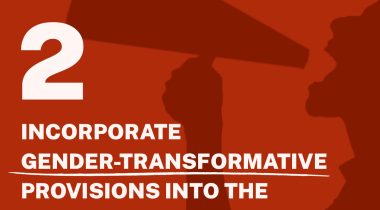
Naomi Fowler ■ Systemic racism, reparations and tax justice: the Tax Justice Network podcast, June 2020

In this episode of the Tax Justice Network’s monthly podcast, the Taxcast:
- We look at the United States and how tax justice can help address systemic racism.
- Plus: did you know Britain’s slave owners compensation loan was only settled by the government in 2015 on behalf of taxpayers?
Faulkner wrote: “The past is never dead. It’s not even past.”
As we discuss, the legacy of centuries of institutionalised racism is that a wealth chasm has been created between black and white communities.
We also know that the City of London in Britain built its wealth from slavery and empire. Still today, major finance sectors have extractive business models which impoverish some of the world’s poorest nations. And, financial secrecy is another form of empire.
So how can we think about combining tax justice and reparations? Keval Bharadia‘s work on a super tax on the $8 trillion a day financial markets could help show the way. And all financial institutions must have independent slavery money audits. For those financial institutions now coming forward and offering what they’re calling reparations funds, how do we ensure that these funds are large, they’re targeted to the right places, and they’re ongoing?
A transcript of the programme is available here (not 100% accurate)
Featuring:
- Cortney Sanders and Michael Leachman of the Center on Budget and Policy Priorities
- David Sorenson of the People’s Tax Page
- John Christensen of the Tax Justice Network
- Produced and hosted by Naomi Fowler of the Tax Justice Network
We’re recovering from many things. We’re recovering from COVID-19, we’re recovering from 400 years of oppression, and we are also recovering from a looming economic downturn. And one thing we know for sure, and we continue to learn with every economic downturn is that States have choices. They have a choice point and that’s to cut services and continue to cut their budgets that harm families that are in need – or raise revenue, raise revenue on corporations, raise revenue on those that are most profitable and the wealthy. And that’s a racialised choice, given the country’s history and ongoing biases.”
~ Cortney Sanders, Center on Budget and Policy Priorities
There needs to be a proper negotiation on what level of reparations should be paid and to whom and who will be responsible for holding reparations in trust funds for the genuine benefit of the descendants of slaves. What must not happen is that banks and other companies use tokenistic reparation payments as an exercise in white-washing while not disclosing the full history of their involvement in slavery or in imperial plunder and pillage.”
~ John Christensen, Tax Justice Network
Want to download and listen on the go? Download onto your phone or hand held device by clicking here.
Want more Taxcasts? The full playlist is here and here. Or here.
Want to subscribe? Subscribe via email by contacting the Taxcast producer on naomi [at] taxjustice.net OR subscribe to the Taxcast RSS feed here OR subscribe to our youtube channel, Tax Justice TV OR find us on Acast, Spotify, iTunes or Stitcher etc. Please leave us feedback and encourage others to listen!
Join us on facebook and get our blogs into your feed.
Follow Naomi Fowler John Christensen, The Taxcast and the Tax Justice Network on Twitter.
Related articles
One-page policy briefs: ABC policy reforms and human rights in the UN tax convention
Tax justice pays dividends – fair corporate taxation grows jobs, shrinks inequality
UN Submission: A Roadmap for Eradicating Poverty Beyond Growth
A human rights economy: what it is and why we need it

Do it like a tax haven: deny 24,000 children an education to send 2 to school

Incorporate Gender-Transformative Provisions into the UN Tax Convention
Just Transition and Human Rights: Response to the call for input by the Office of the UN High Commissioner for Human Rights
13 January 2025

Tax Justice transformational moments of 2024

The Tax Justice Network’s most read pieces of 2024


